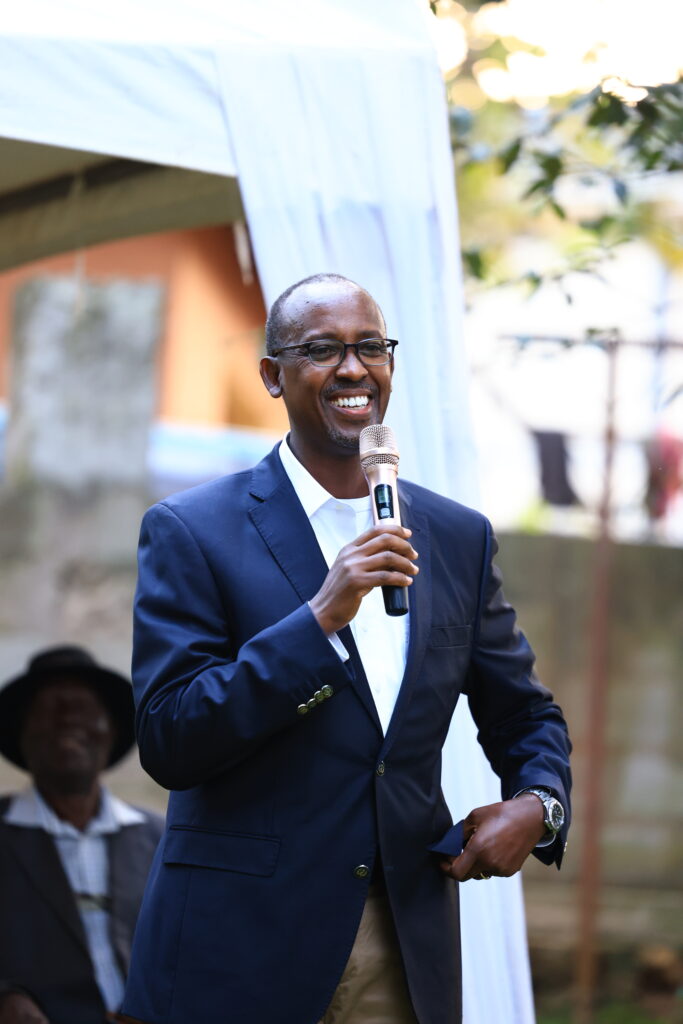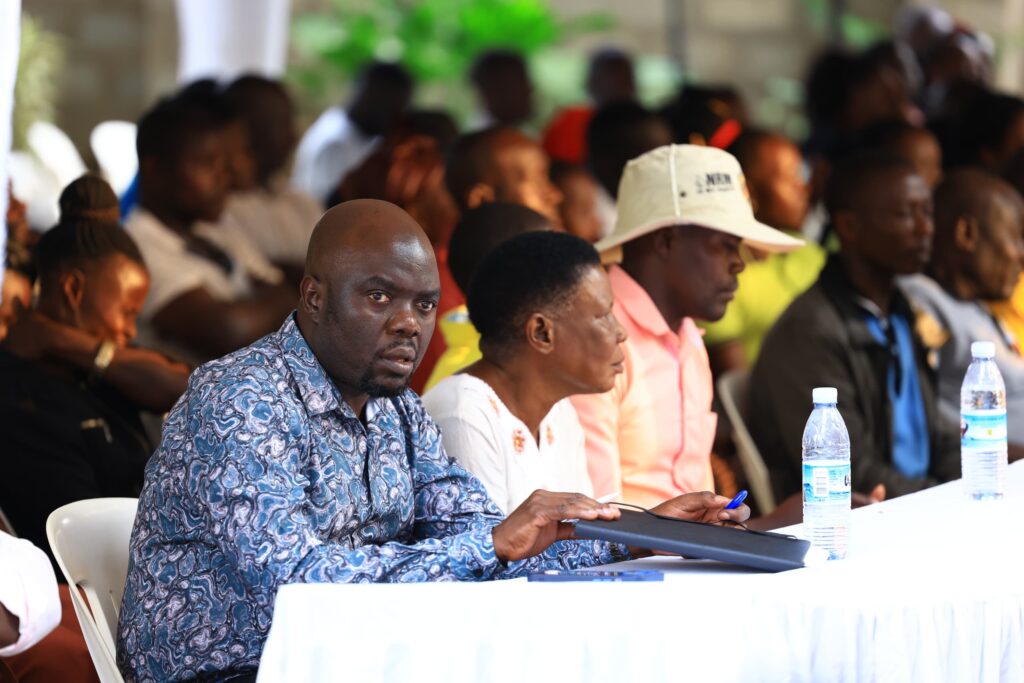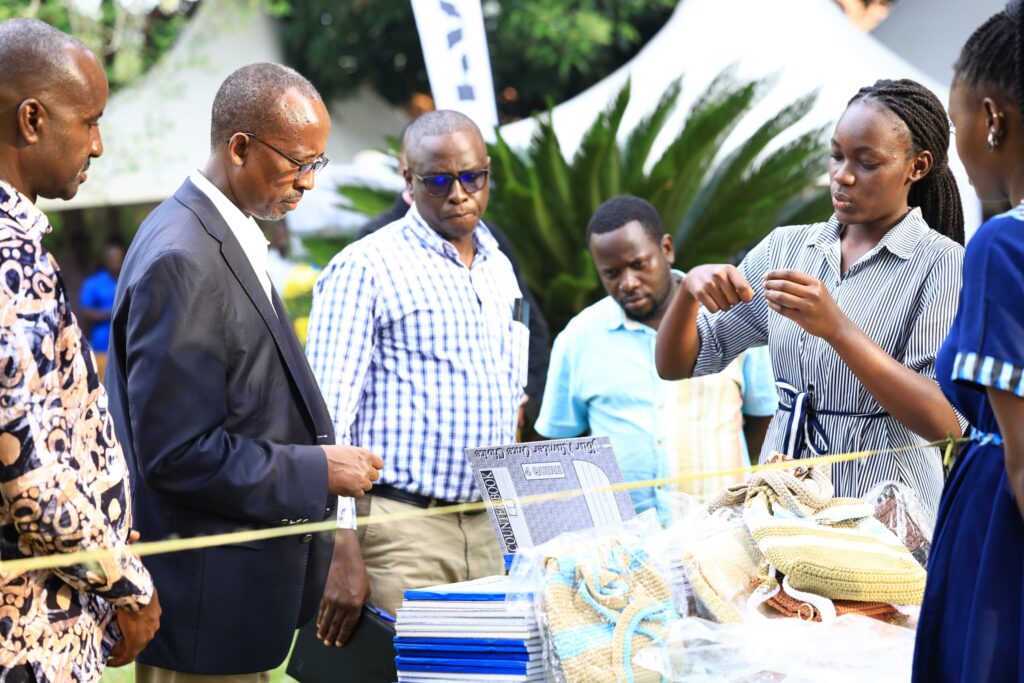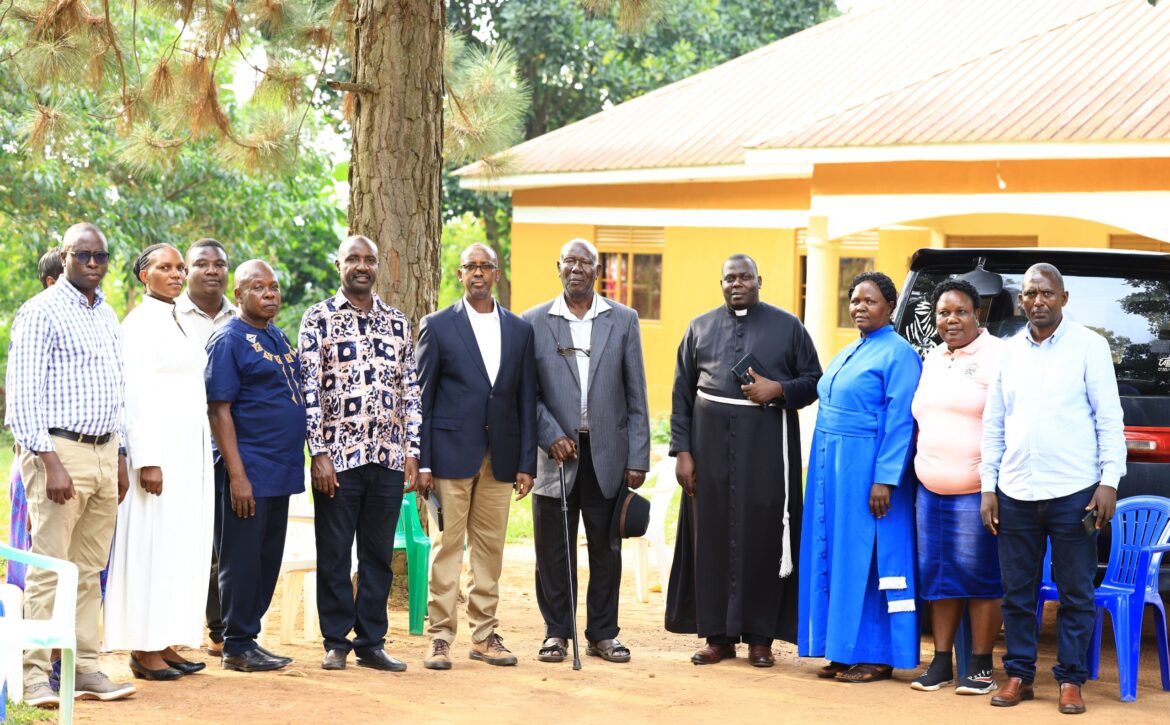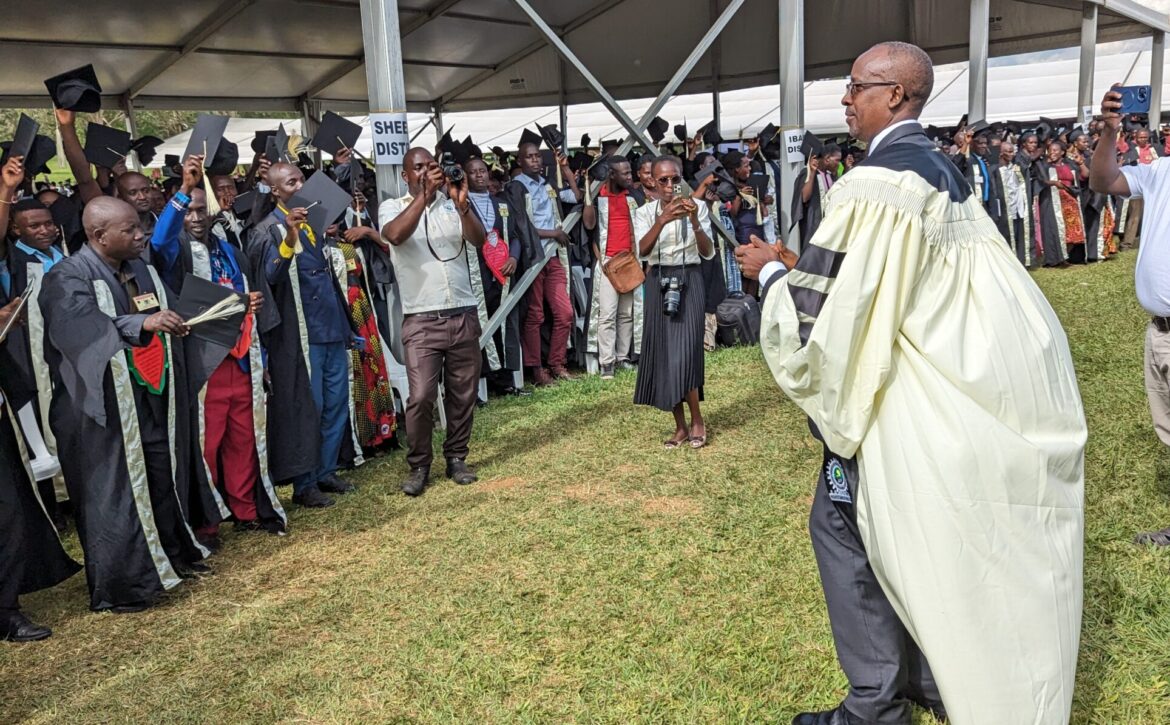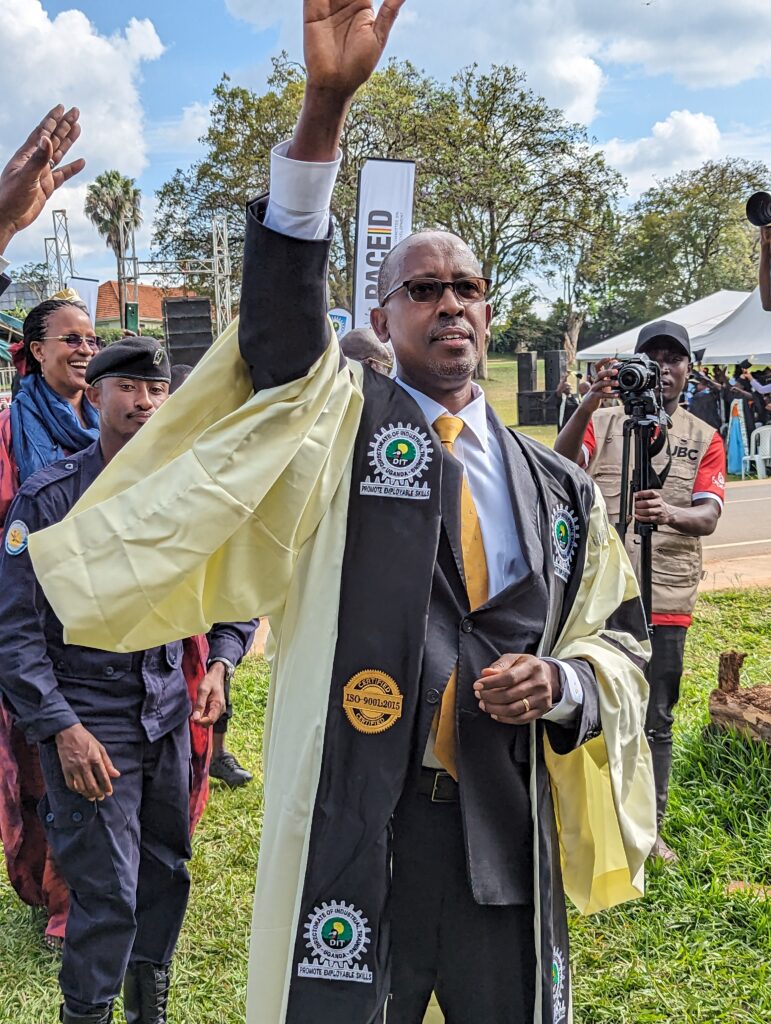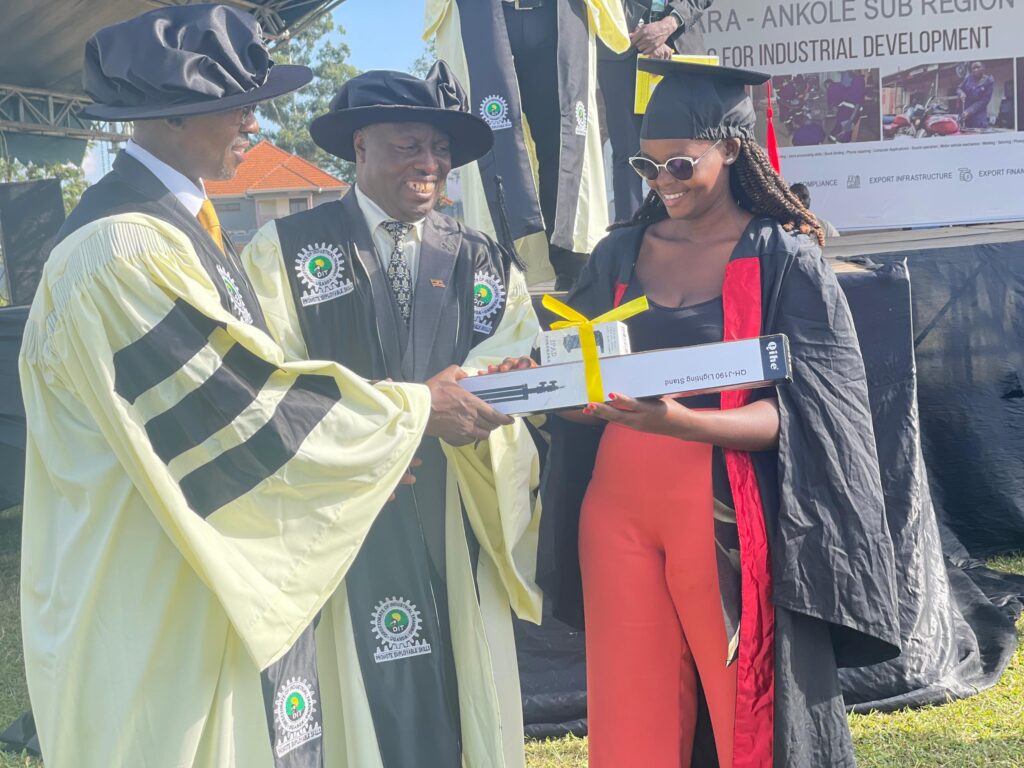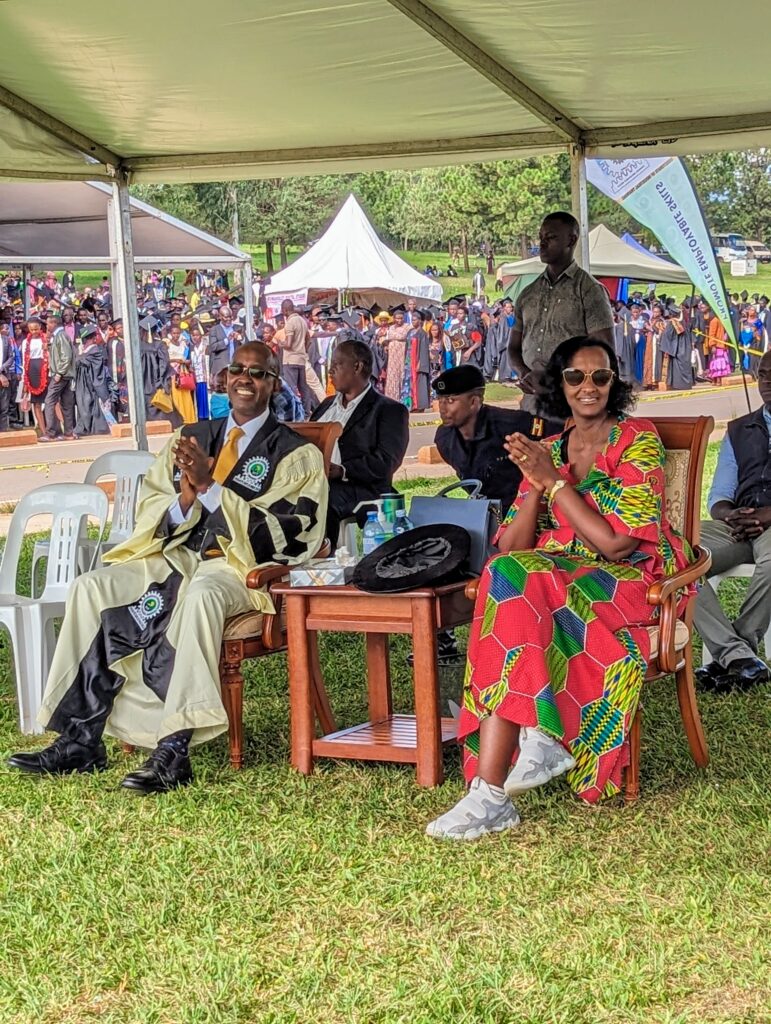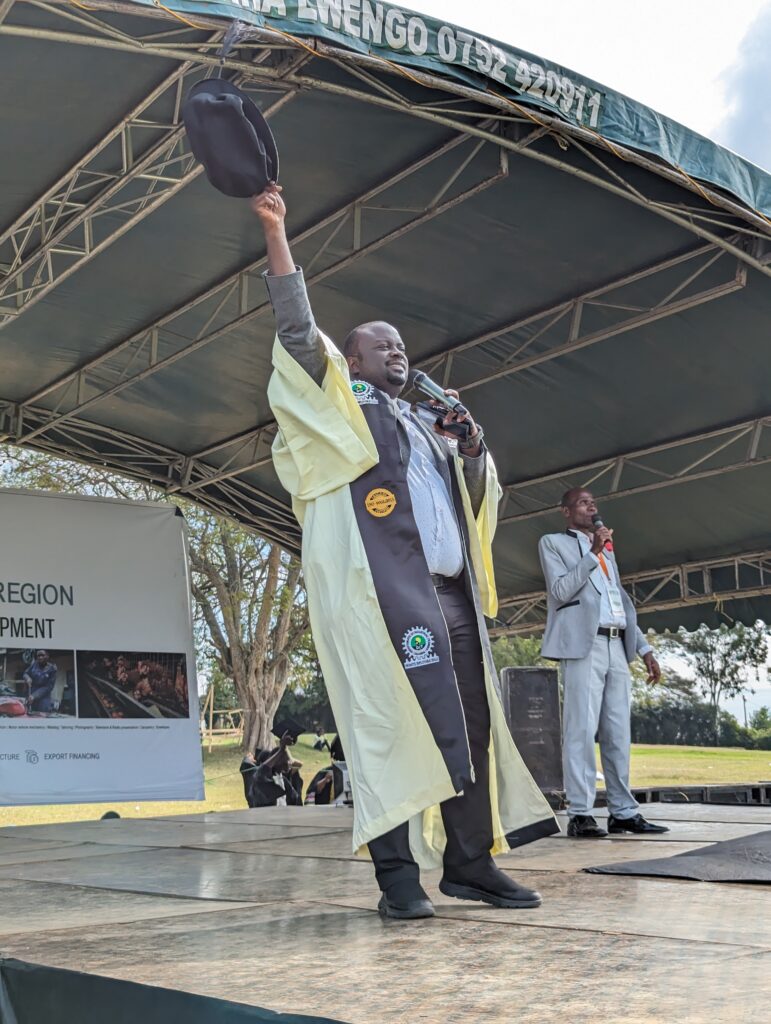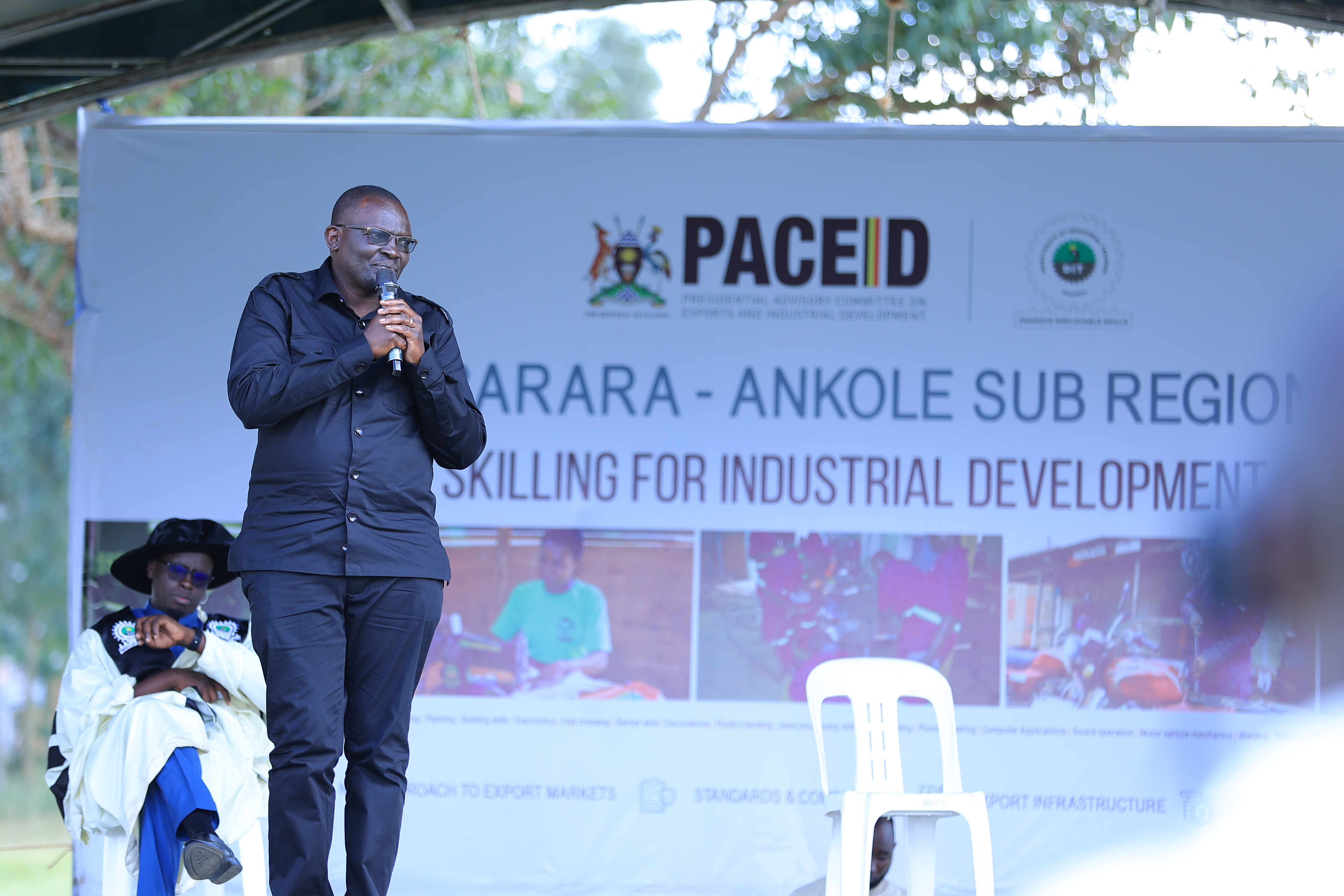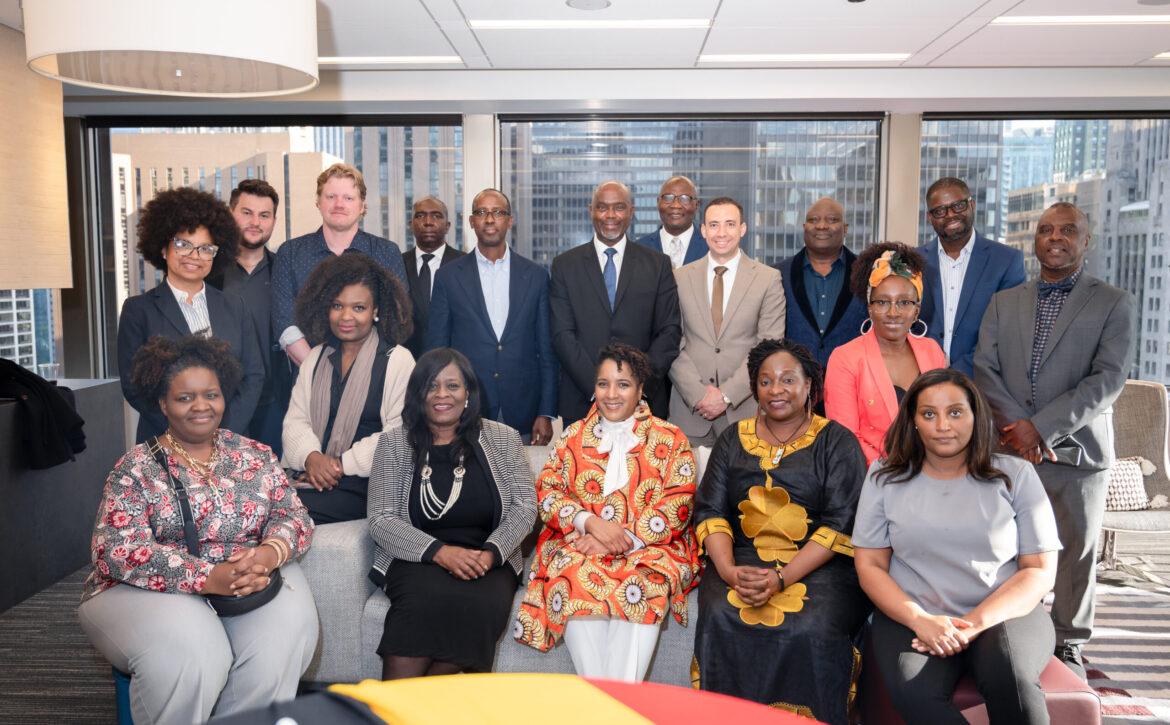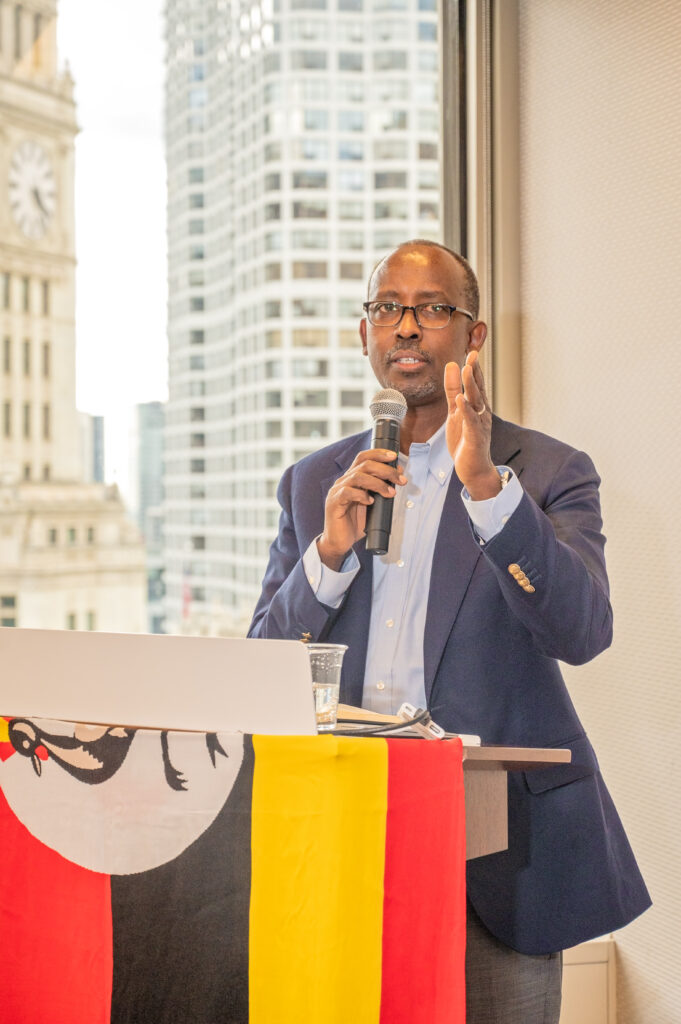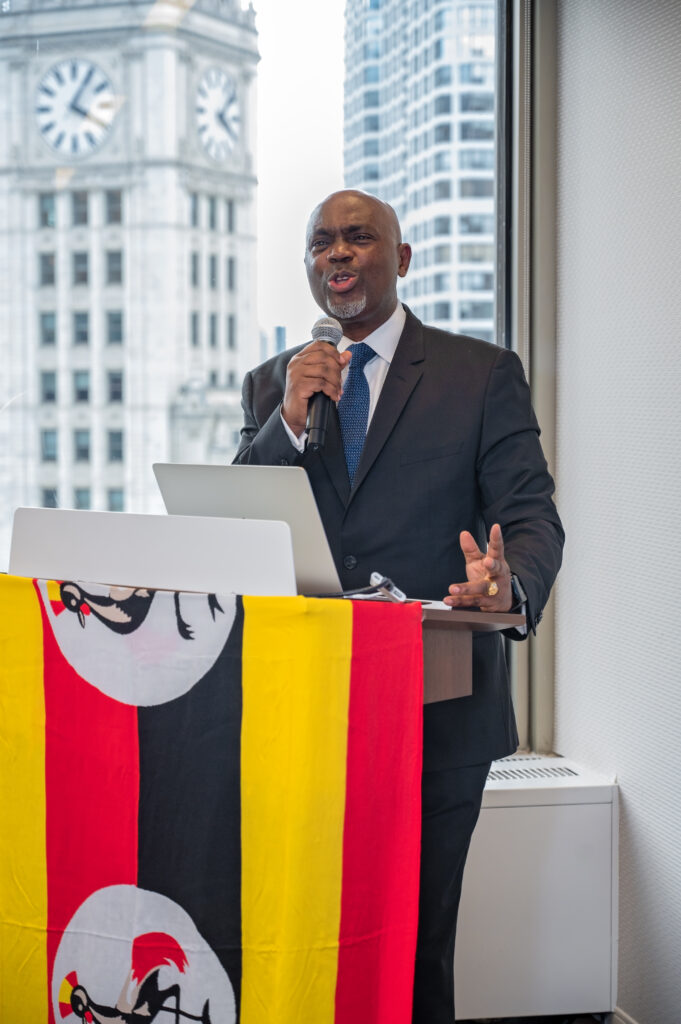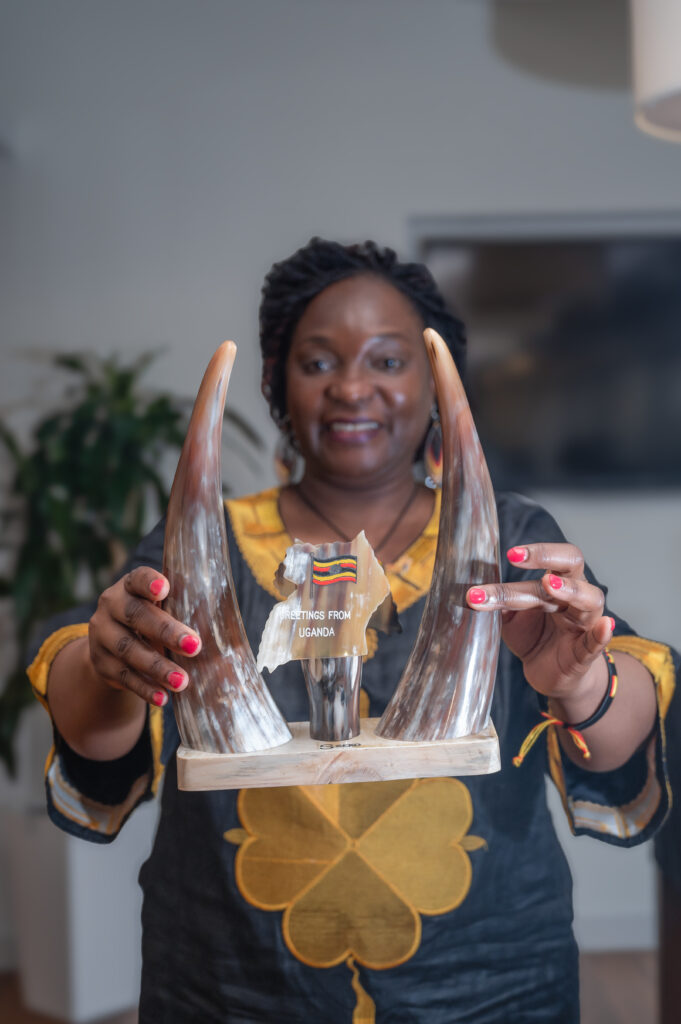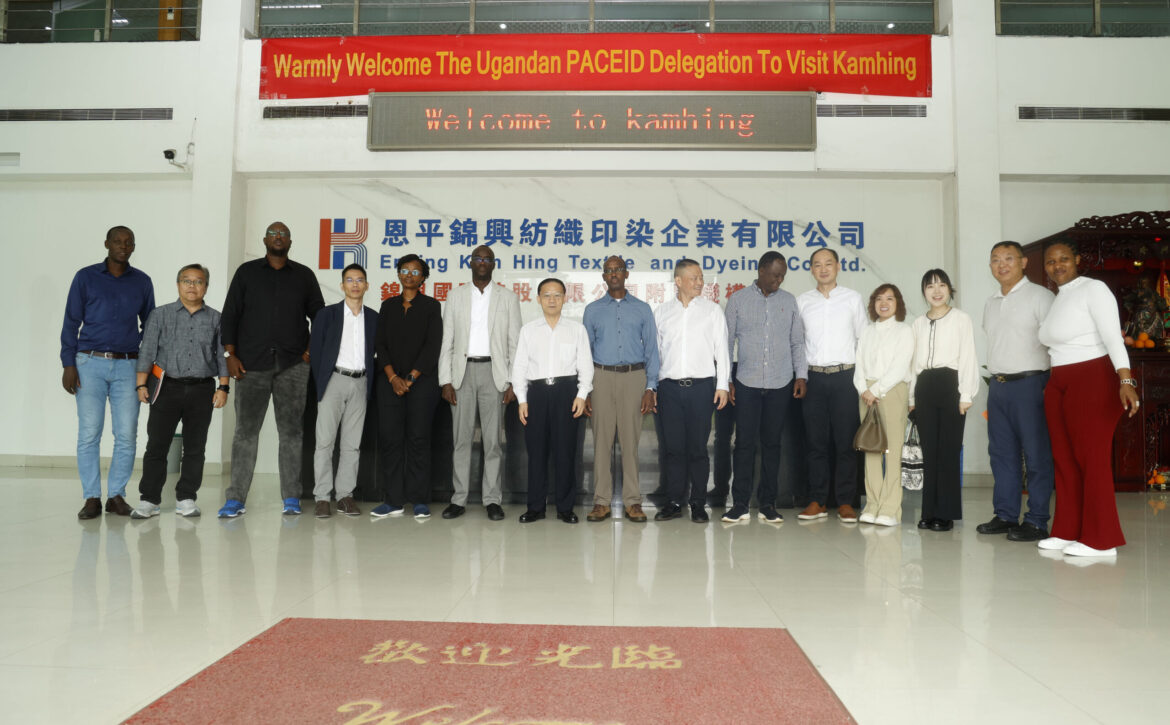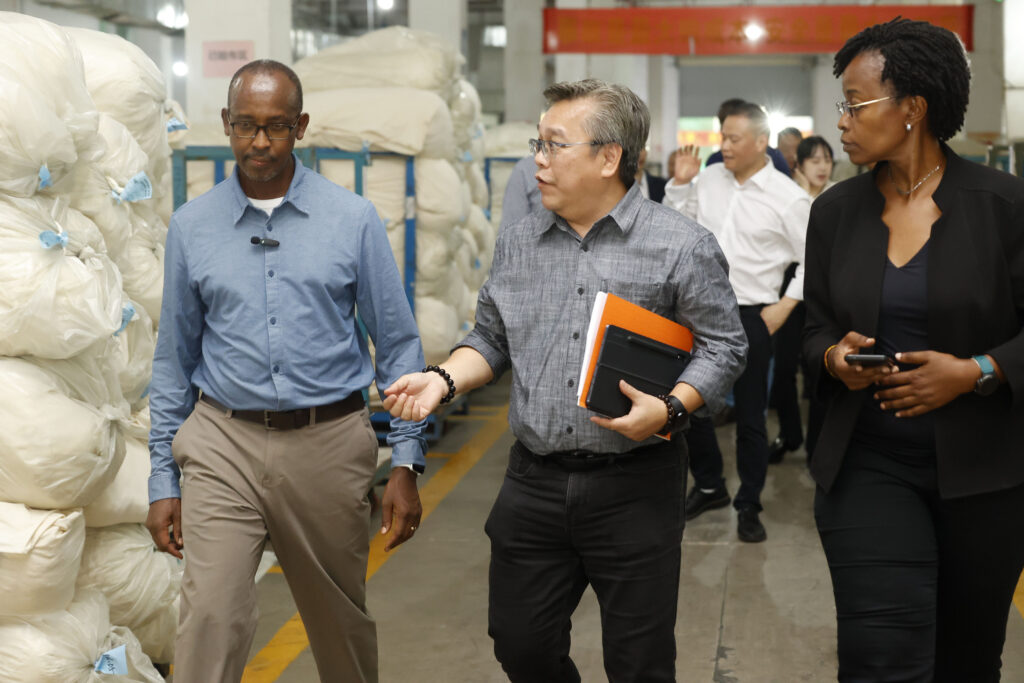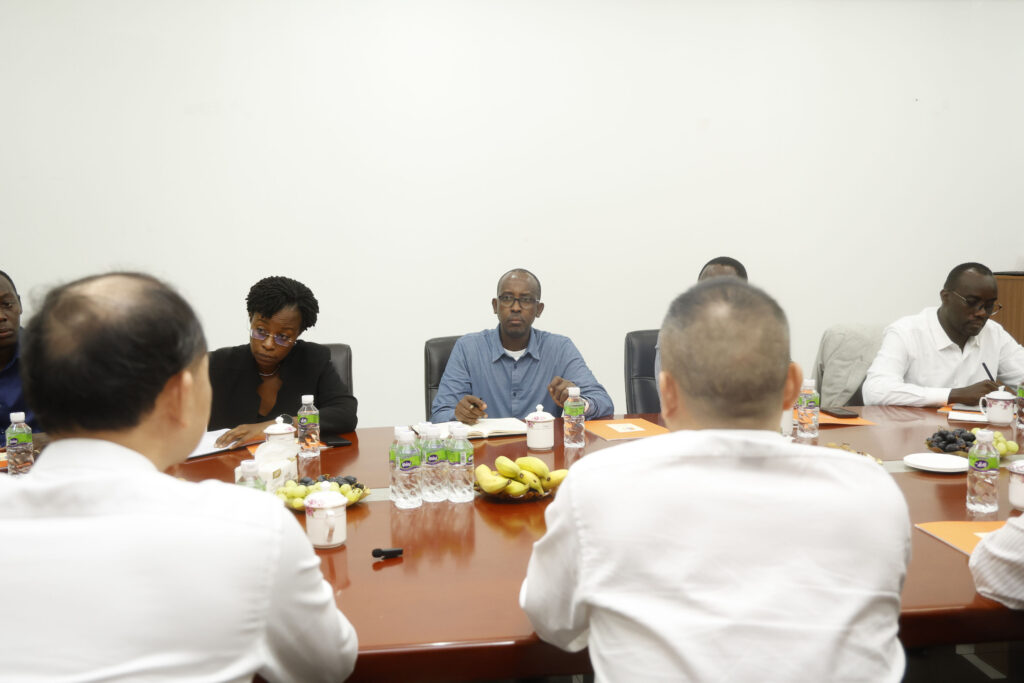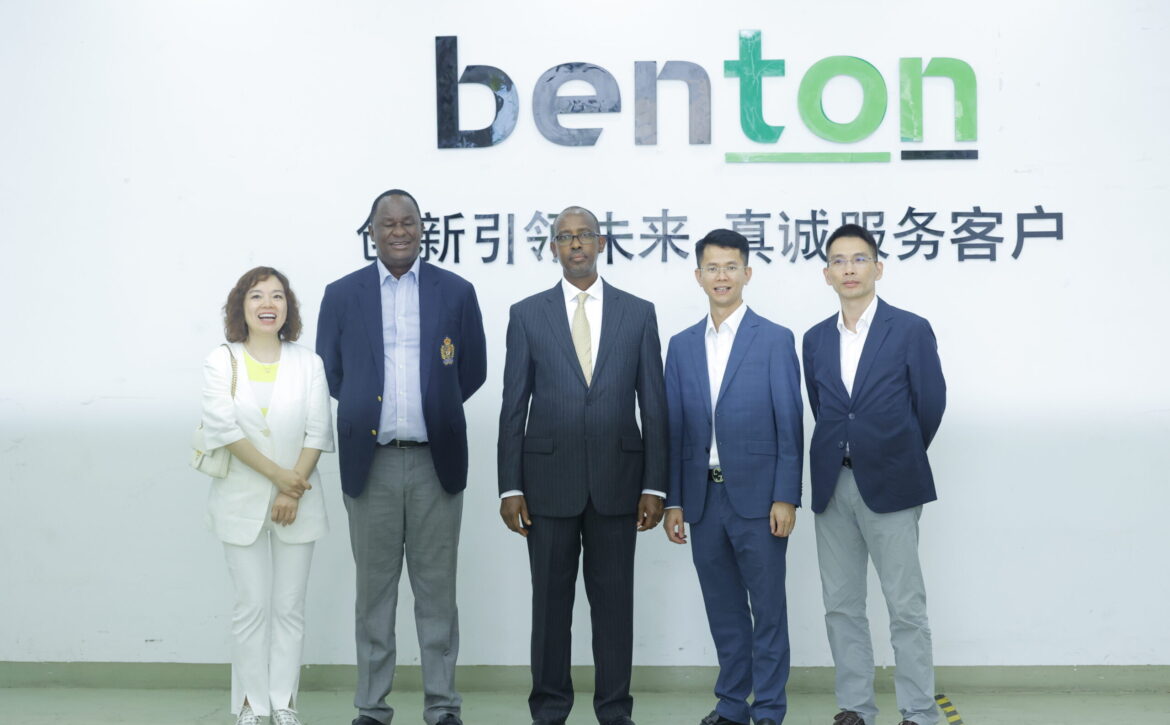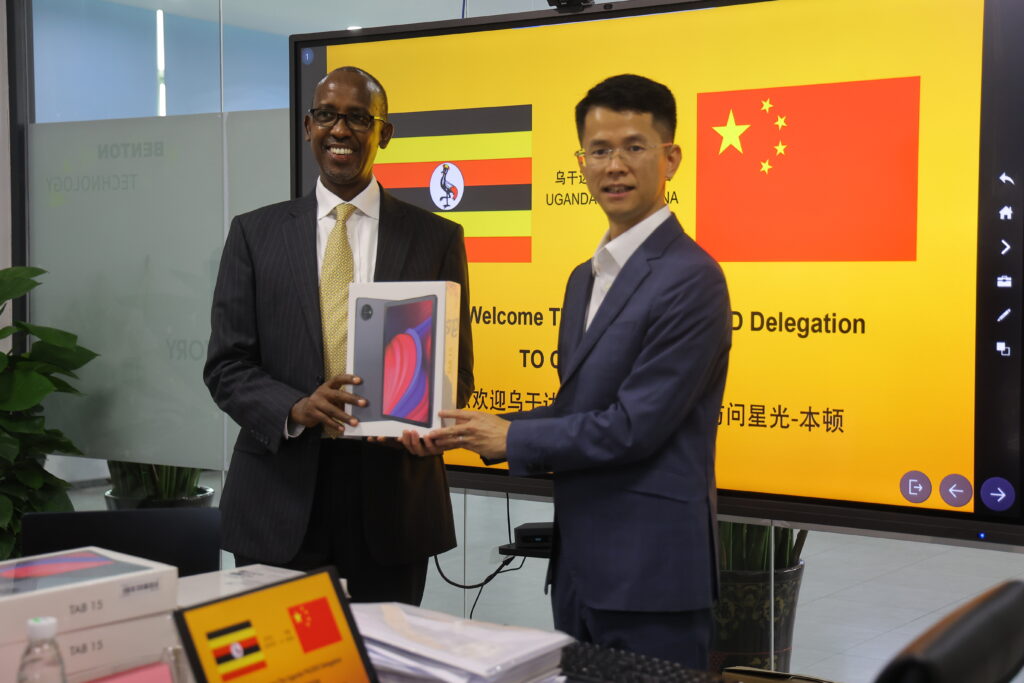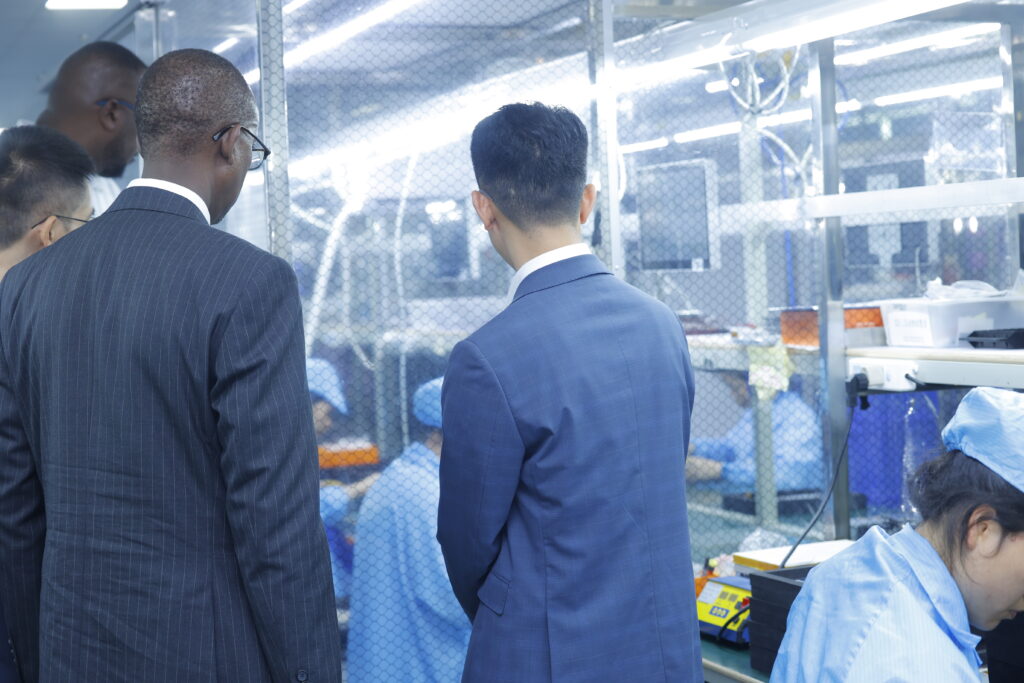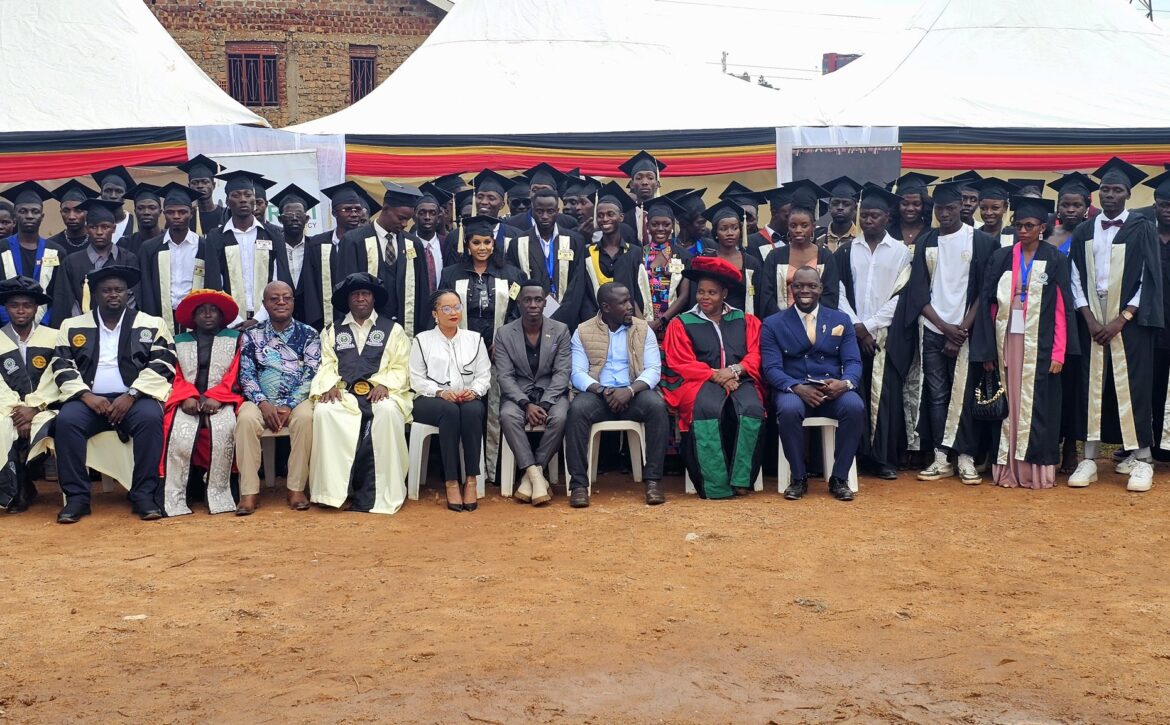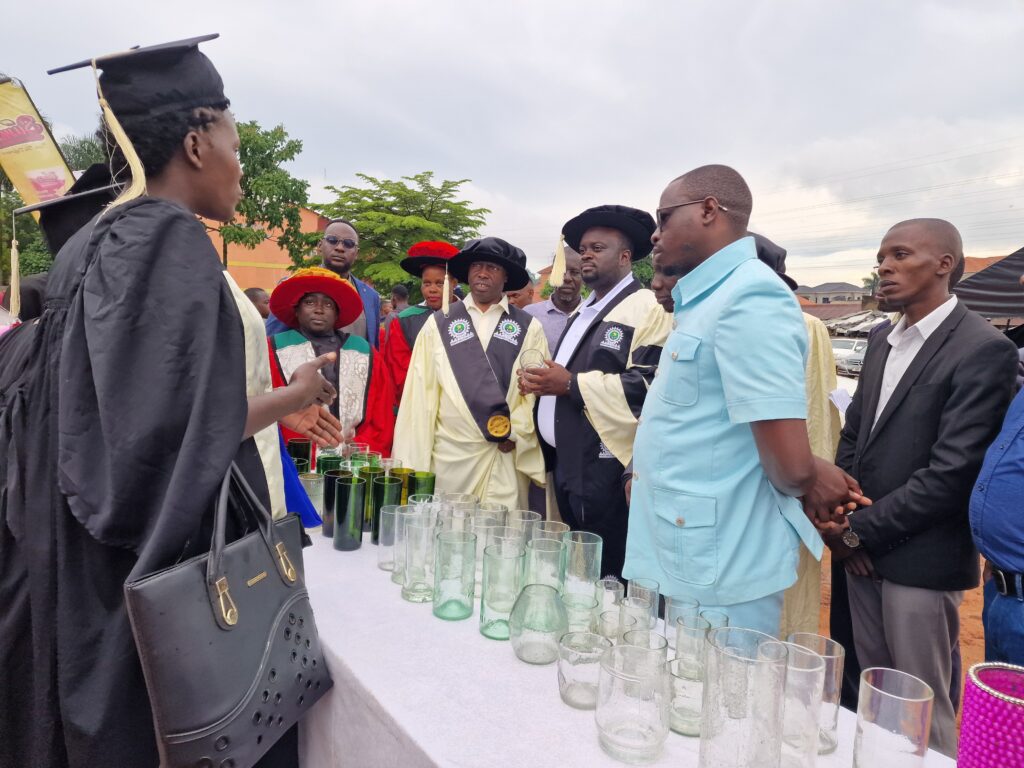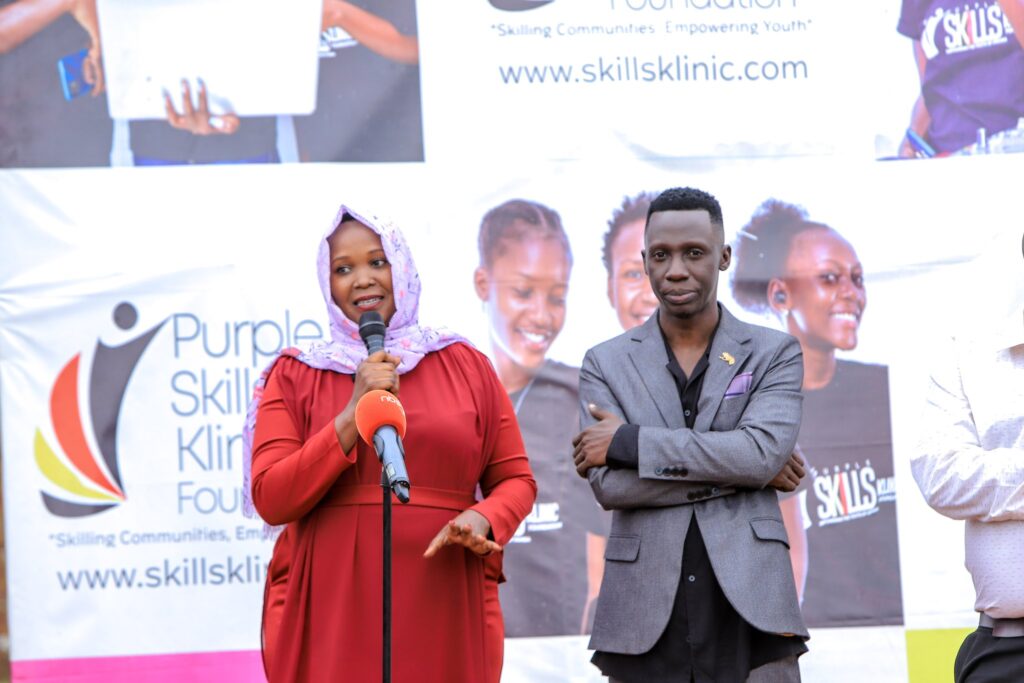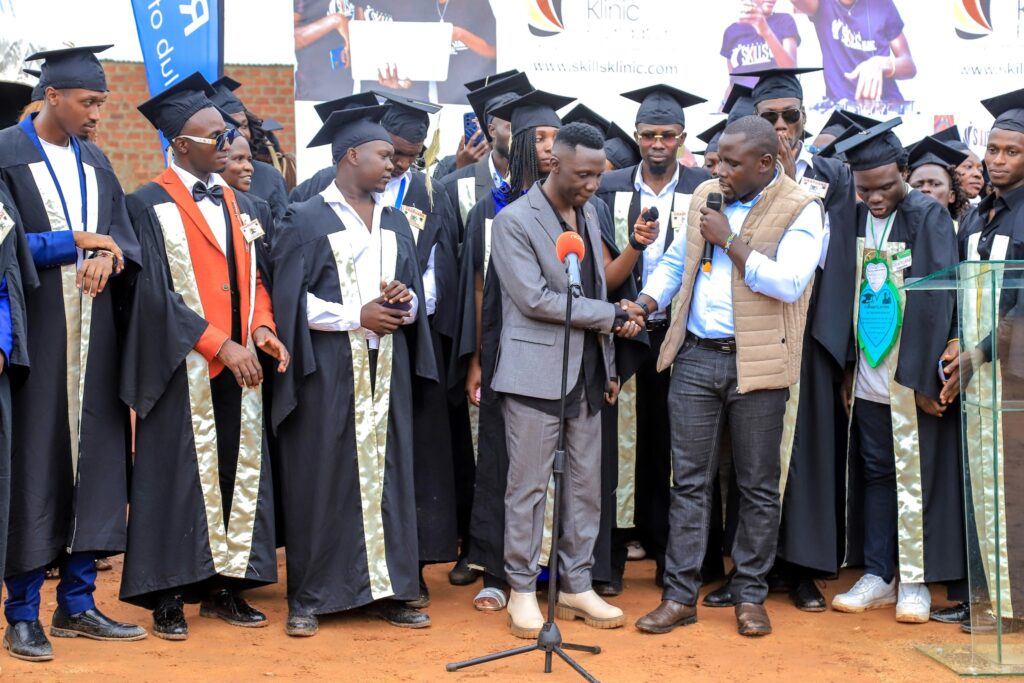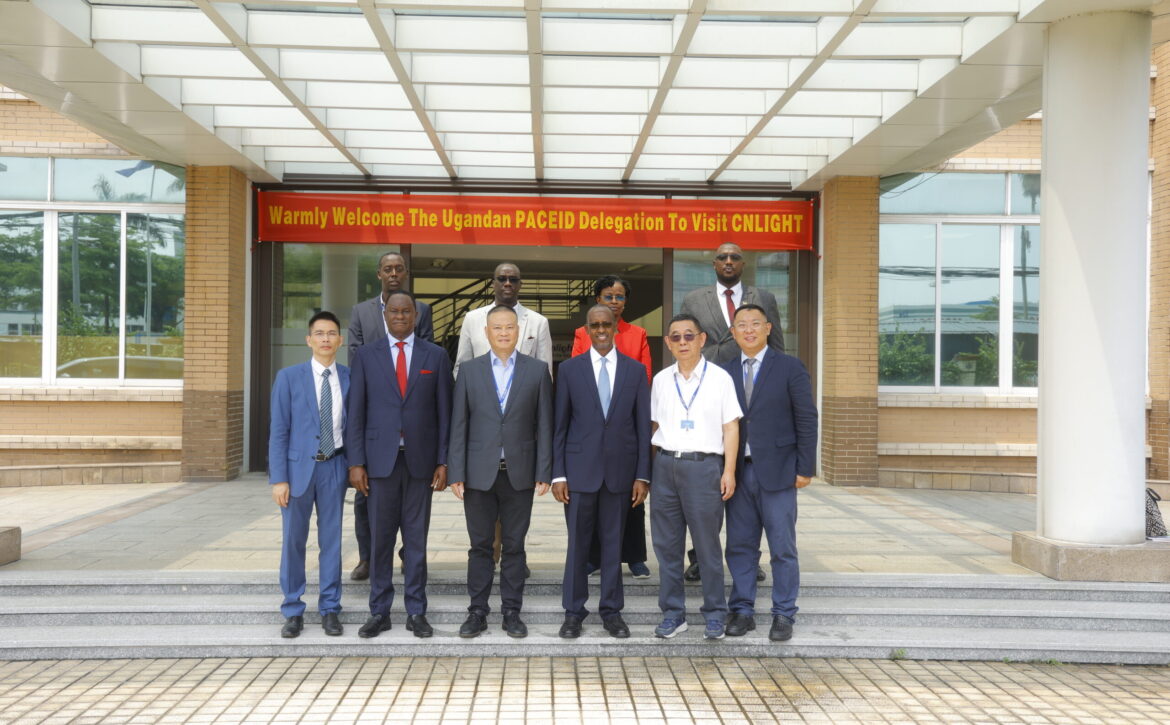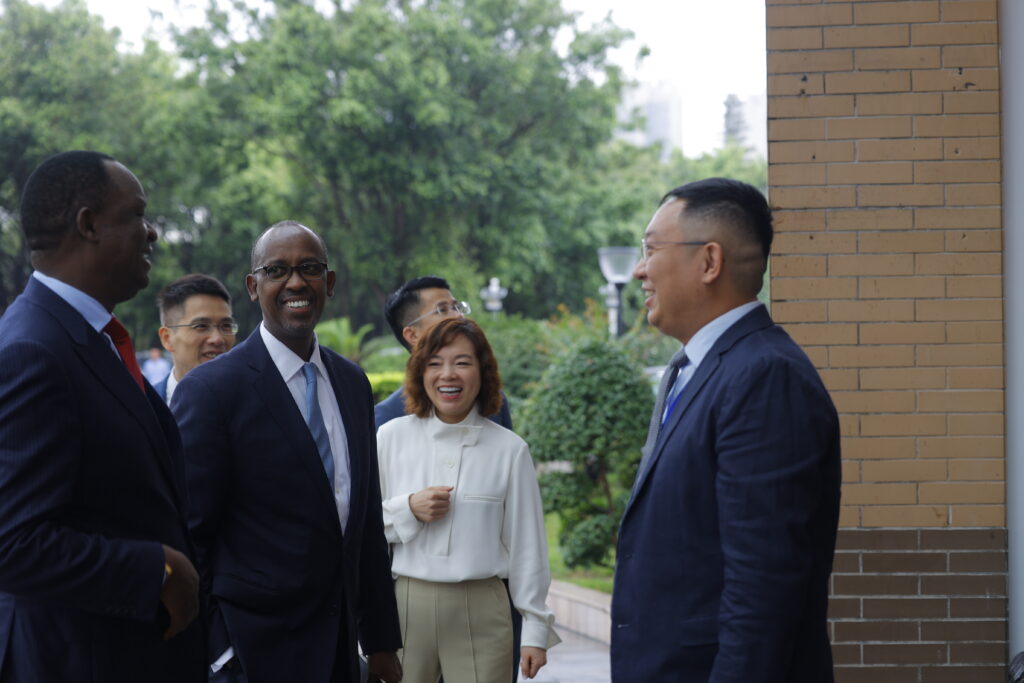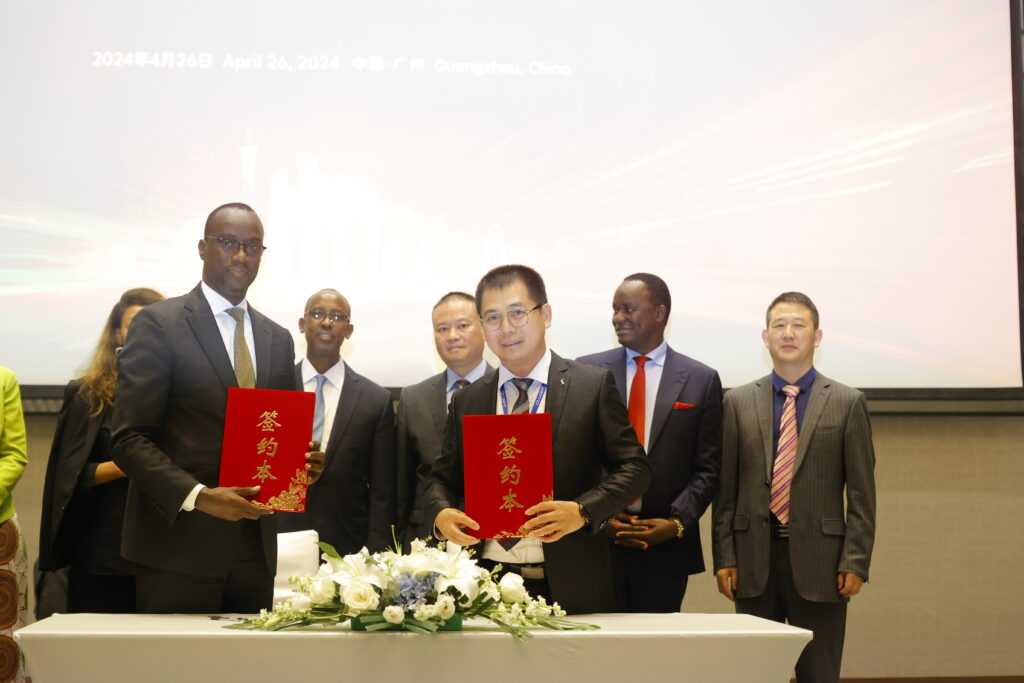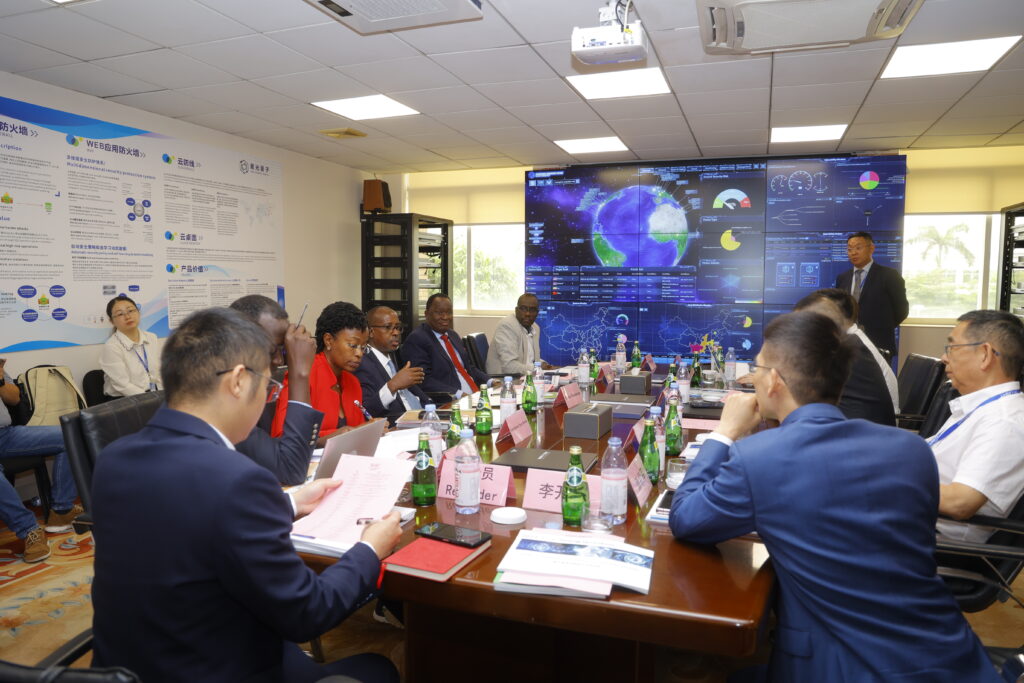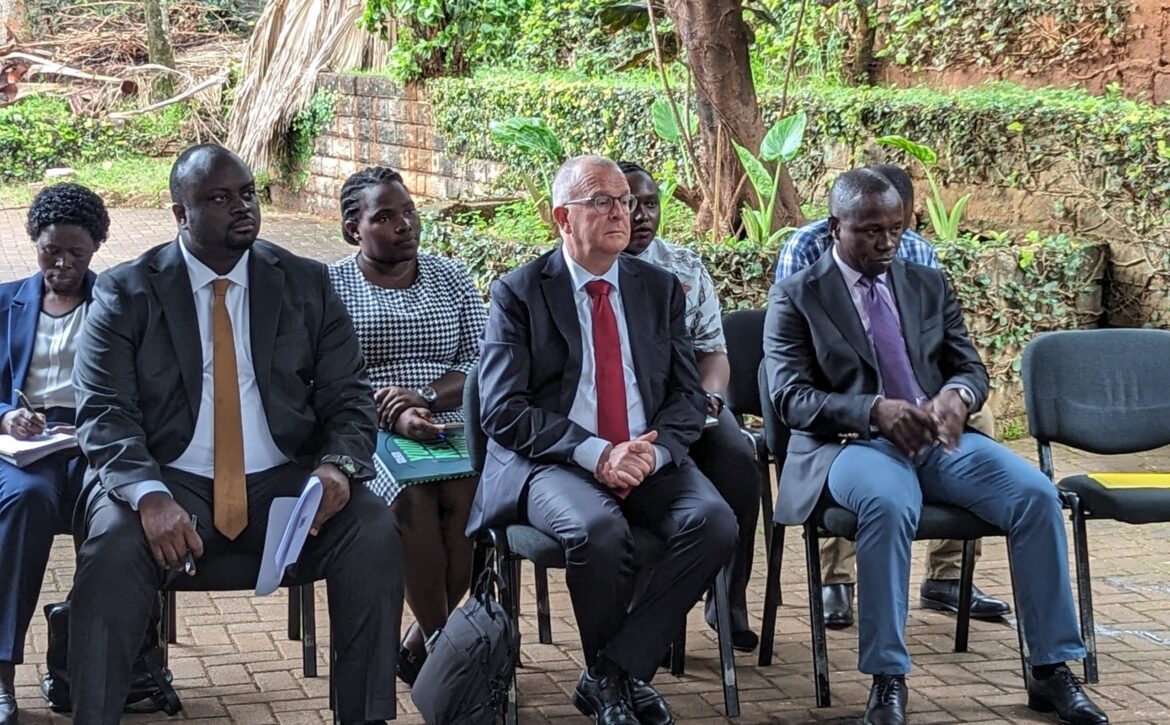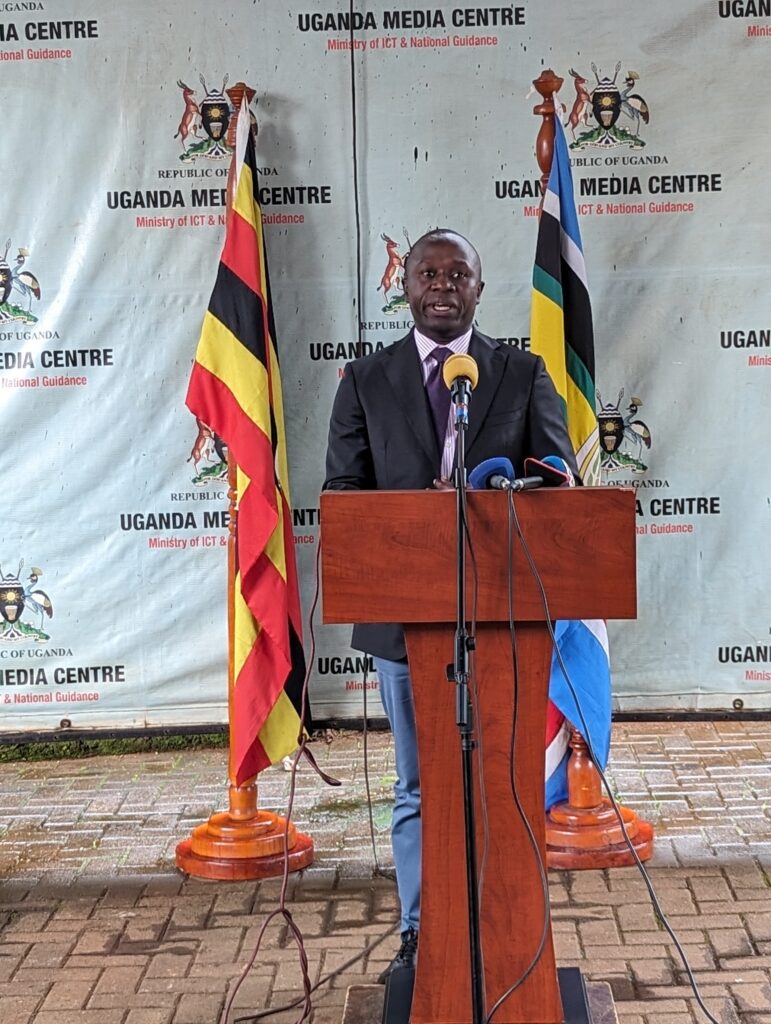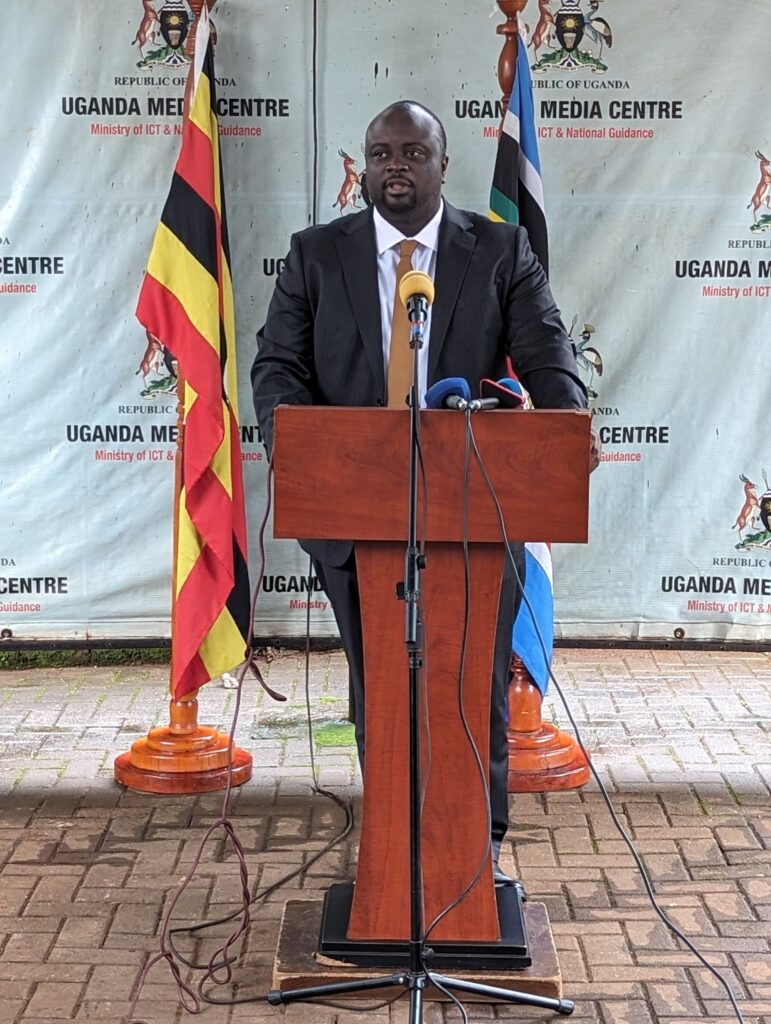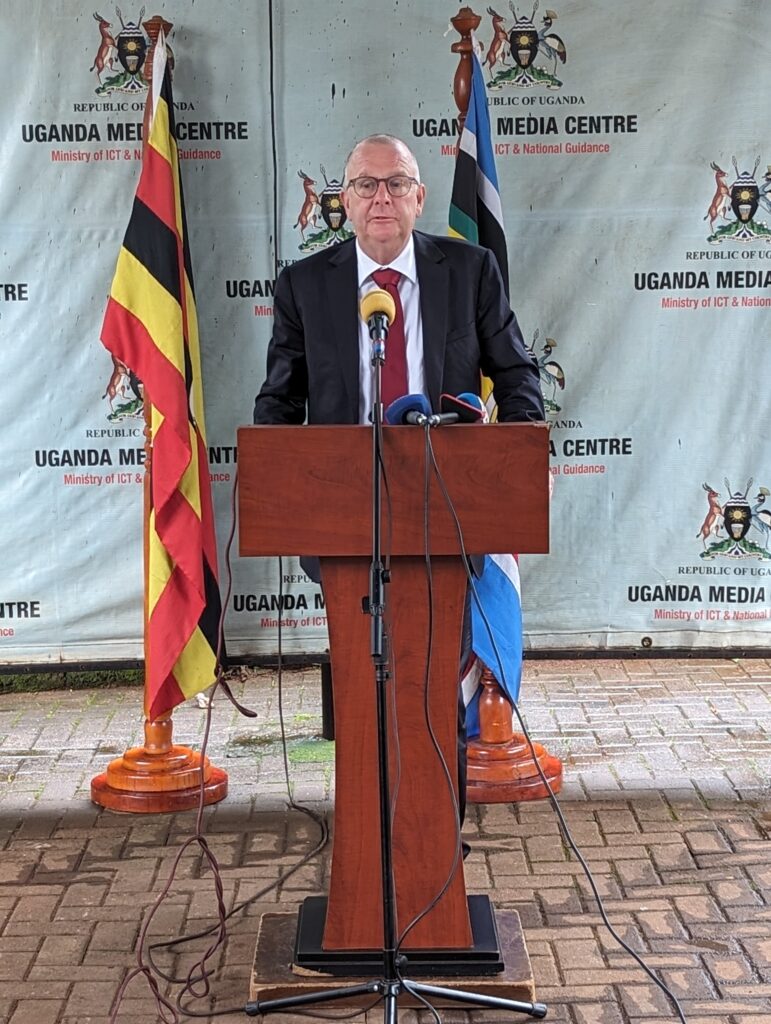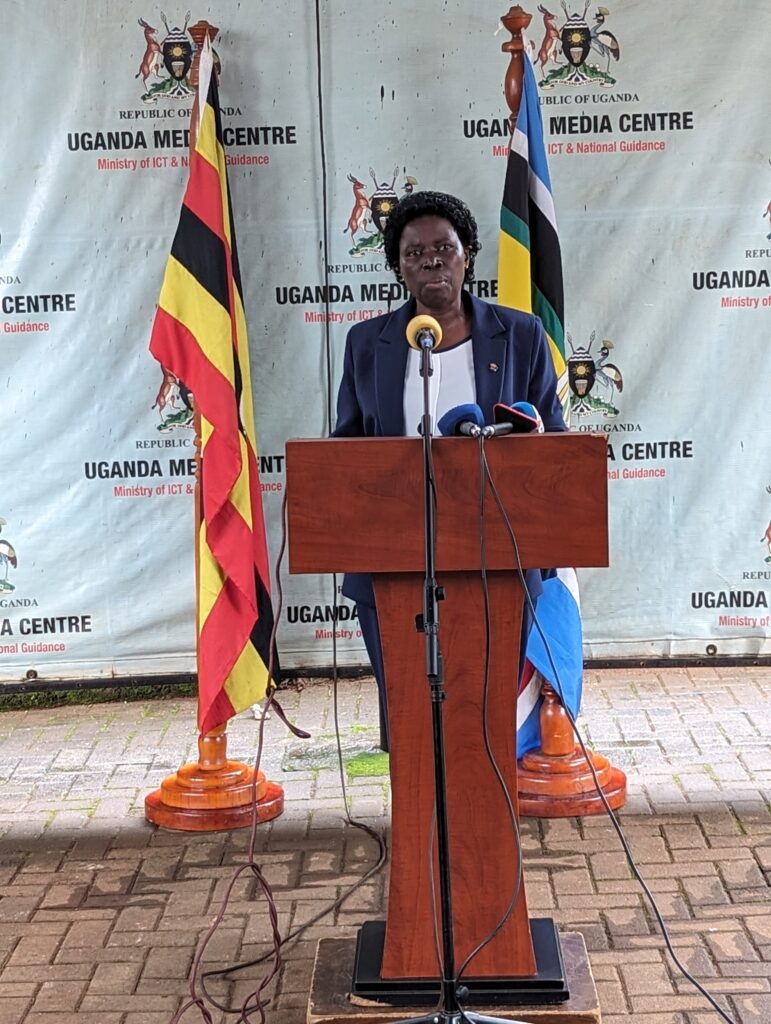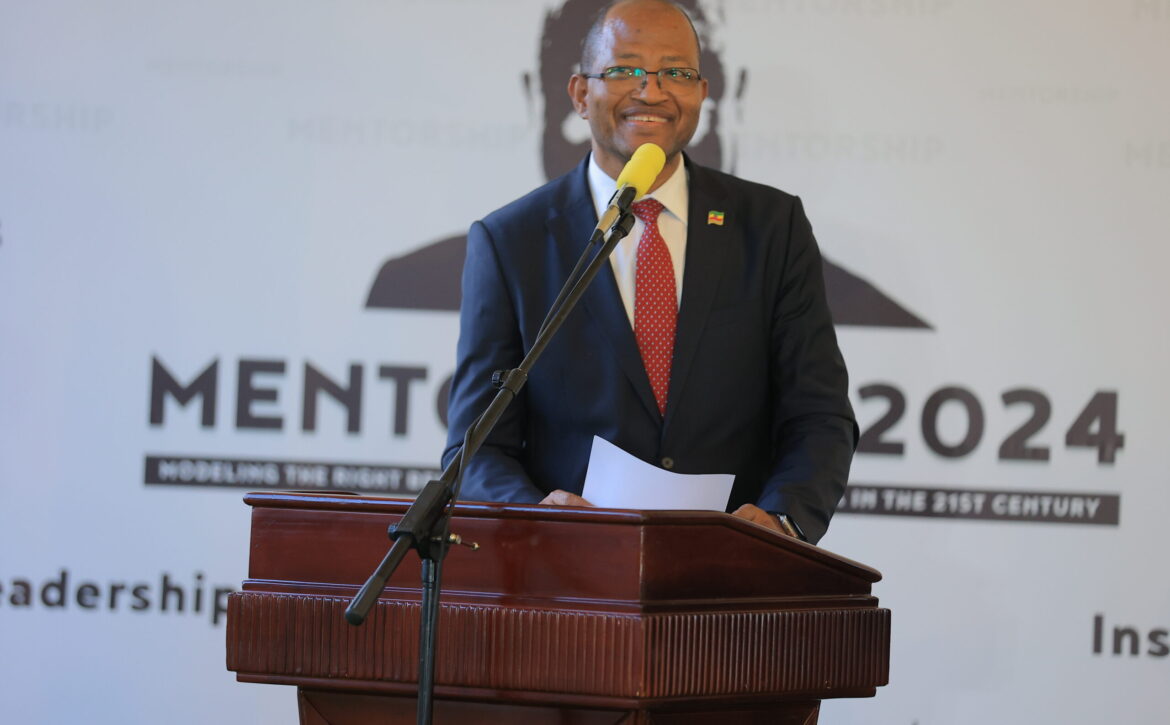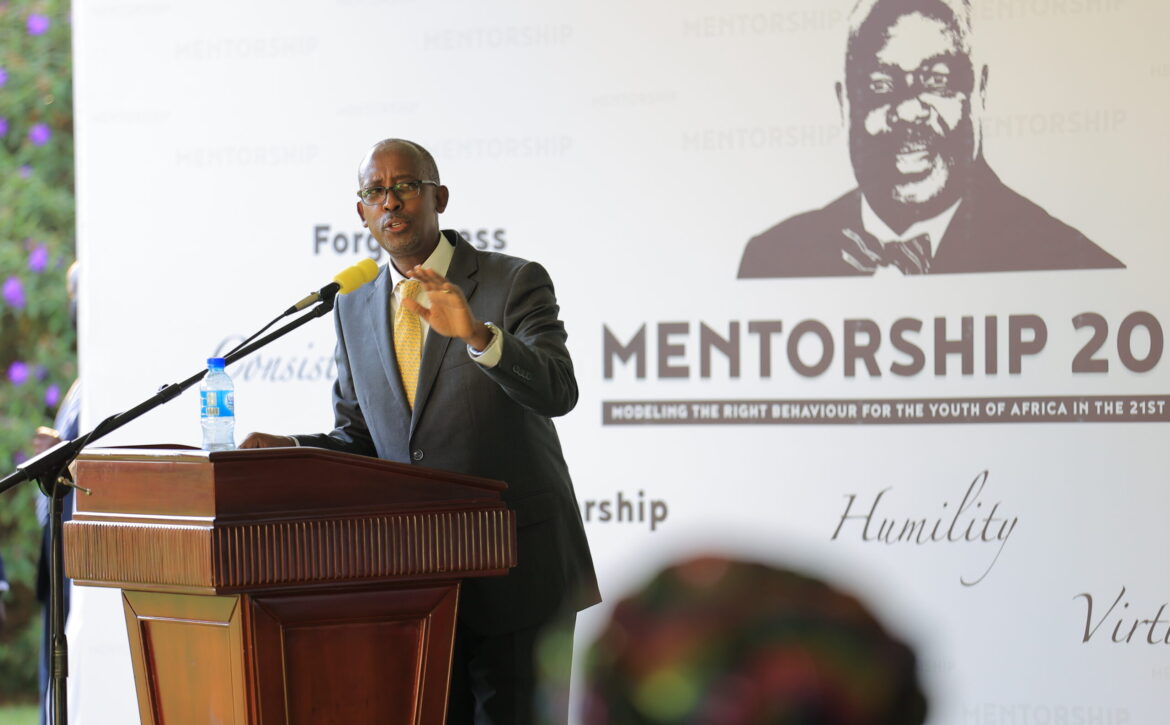Your Excellency Yoweri Kaguta Museveni;
Excellencies;
Ladies and Gentlemen,
Gyebale Ko
Greetings,
First of all, allow me, Your Excellency, to extend my sincere appreciation and heartfelt thanks to the people and government of Uganda for the warm welcome and hospitality accorded to me and My delegation since our arrival to Uganda, the pearl of Africa. I would particularly seize this opportunity to appreciate Honorable Anita Annet Among, Speaker of the Parliament of the Republic of Uganda, for welcoming me from the moment I disembarked from the plane.
Let me begin by expressing my heartfelt gratitude to my brother, His Excellency Yoweri Museveni, and his government for establishing a national platform to recognize public servants who served their country with integrity and courage that future generations of this great country will undoubtedly look up to as modeling a character. We must acknowledge African role models and create avenues for them to shine, inspiring African youth and beyond.
We must empower and pave the way for African youth to assume their rightful positions through the right mentorship and guidance. As we strive for Economic growth, innovation, peace, and stability, we must not just include young African leaders but also actively engage and empower them. Their unique perspectives and talents can significantly contribute to these vital goals of our well-being. We must also acknowledge their outstanding achievements publicly on such a decorated platform.
I know that the Right Honorable Dr. Jacob Oulanyah is a brilliant and ambitious young African who has dedicated himself to improving his nation and Africa. I would also like to congratulate the family of the late awardee for leading by example. Regrettably, he could not accept this honor in person and spend more time with his loved ones while serving his beloved country.
But his loved ones, those who survive him, are honored by his services, and I believe they will carry on his legacy. Seeing Hon. Andrew Oulanyah, his son, following his father’s example filled me with immense pleasure. This is a testament to his father’s leadership and values passed on to the next generation, who deserve recognition.
Your Excellency Yoweri Kaguta Museveni;
Excellencies,
Ladies and Gentlemen
Such recognition platforms spearheaded by His Excellency President Yoweri Kaguta Museveni, also the storehouse of Wisdom of Africa, empower African youth to learn from relatable role models to demonstrate the distinctiveness of African heritage, values, and societal fabric. Africa’s vast and diverse heritage, shaped by thousands of years of history, traditions, and practices, has significantly influenced agricultural, medical, and architectural industries worldwide.
This legacy displays the innovative thinking and inventiveness of its citizens. The great achievers have had. The current African generation needs to get the great lessons from our ancestors and bring Africa to its rightful position in the world. With the current global situation, young African leaders must adopt a unique and practical approach to lead their communities to a brighter future.
In order to achieve success, we must strive for excellence by setting a grand vision and putting in the necessary effort with impeccable time management Skills. Let us aim high and work diligently to reach our vision. I can assure you with the right eye, provision comes. My message today for African Youths is to celebrate and honor our distinctive African values, no matter what challenges come our way. Let us follow in the footsteps of Ugandans who are making every effort to preserve these values with utmost dedication. Let us not forget that our values define our very being and form the foundation of our cultural heritage.
They are the essence of our identity, and we must honor them by passing them on to the next generation. With pride and reverence, let us hold our values close, for they are the key to our future. It is high time to trust in our abilities to solve African Issues. We know what goes wrong with us better than anyone else, so why should we invite foreign interference? Let us embrace African solutions for African problems and take control of our destiny. By implementing this concept in Ethiopia, we overcame challenges and reap the benefits. Similarly, having 60 percent of the population without access to electricity is a problem.
To address this problem, we envision building a magnificent Great Ethiopian Renaissance Dame, and to make it a reality, we invested 4.7 Billion USD from our coffers. It wasn’t an easy feat- we encountered numerous challenges, including accessing international organizations’ finances. However, we persevered and overcame the issue of finance coordinating our population. Now, we are proud to say that we are exporting electric power to our neighboring countries as a testament to the success of our efforts. Ethiopia’s Prime Minister, Dr. Abiy Ahmed, the only Peace Prize winner among African leaders, is a young leader like you. He got the prize for his capacity to bring African solutions to African Problems. Problems are meant to be solved, and instead of being discouraged by difficulties, we should embrace them as opportunities. We have several tangible African testimonies that can inspire the present youths. As our world-class long-time athletic legend Haile Genresilassie said, “It’s possible. I repeat it: it is possible.
Your Excellency Yoweri Kaguta Museveni;
Excellencies;
Ladies and Gentlemen,
It is a known fact that we Africans are a continent that is a cradle of civilization, from Ethiopia’s monolithic churches of Lalibela to Uganda’s Kasubi tombs, from Kushite Egypt’s and Sudanese pyramids to Great Zimbabwe ruins, from Ashanti to Timbuktu, every one of which speaks to our magnificent past. This demonstrates Africa’s significant contributions to world civilization in critical areas such as science, technology, and education, all of which our young should learn from.
To unify Africa, the founding fathers had first to break free of colonialism. They had to pay the price for winning a long and difficult battle against exploitation. The battle of Adwa dealt a crushing blow to colonialism and became an emblem of hope for black people in Africa and around the world. In gold letters, history chronicles the names of our ancestors who fought to transition the continent from colonialism to independence and union. Their anti-colonial souls sang to the tune of Pan-Africanism. The founding forefather envisioned a united continent adorned with solidarity, where generations lived their passions to the fullest and worked for the betterment of their children while bound by sovereignty and cooperated.
The Adwa of our time, a battle we must win, is to overcome the bleak legacy of colonialism and neocolonial practices by steering a new version of Pan-Africanism to free Africa from the shackles of underdevelopment. Governments should circumvent the neocolonial system and adequately address the continent’s ongoing challenges of economic reliance, corruption, and stagnant development. We must work together to capitalize on Africa’s immense natural and human resources to benefit her children.
It is our collective responsibility to leave a better Africa for the next generation through the execution of the following fundamental measures:
Your Excellency Yoweri Kaguta Museveni;
Excellencies;
Ladies and Gentlemen,
First comes achieving tangible prosperity by establishing a solid national and continental identity, promoting the rule of law, committing to a peaceful transition of power, establishing competent administration, and prioritizing growth.
They are cultivating industrious and inward-looking youth with indigenous ideals such as Medmer/synergy so that they are conscious of their communities, countries, and continents, as well as the strength and resources they have to succeed in a changing world. Today’s Leaders are expected to demonstrate Pan-Africanism and educate our youth that we flourish in unity and collaboration.
Targeting Universal Education is one technique for creating a knowledgeable generation. Restoring religious institutions, schools, and media is crucial for the holistic development of our youth. Our students should benefit from technology literacy; thus, broadening their experience in this area is vital.
Second, it is vital to develop open economies and domestic asset bases while encouraging trade and commerce. We must continue to deepen regional integration, such as expediting the African Continental Free Trade Area (AFCFTA) and increasing infrastructural connectivity among our countries to connect communities, enhance trade, and enable economic integration. Building roads and expanding rail networks, communication networks, and pipes to fulfill the rising need for clean water and energy is a critical step toward realizing the benefits of regional and continental integration. Import substitution, industrialization, and strengthening regional trade ties are also essential.
Third, we strive to realize the Africa we want by meeting Agenda 2063 milestones and other continental and global strategic frameworks. While we appreciate and acknowledge our accomplishments thus far, we must guarantee that we remain on track for the future. In this way, our struggle against neocolonial systems will be on the right track.
Fourth, sustaining peace and stability is critical to economic and social progress. We must use more innovative and indigenous approaches to dispute resolution that align with our maxim “African solutions to African challenges.” In today’s post-fact circumstances, young people need to be able to recognize legitimate and advantageous information. This empowers our young people to promote peace and stability by addressing problems and grievances through appropriate channels.
The National Leadership/Mentorship Award is an excellent reminder to leaders and public servants of their responsibilities. Today’s awardee has been dubbed a “man of three principles” because he made decisions by asking the three questions: “Is it okay with God? Is it okay with the law; will I sleep well if I do that?” He wanted his children to be proud of “using his name and was focused on doing good, winning fairly, and eating only his share.” The Ethiopian proverb “ስም ከመቃብር በላይ ይውላል” translates to “reputations outlive graves.” This award demonstrates that the late Right Honorable Dr. Jacob traveled the path of integrity until the end, which is the kind of character to model for youth.
Public servants should exemplify such integrity by addressing injustice and unfairness, refraining from power abuse, and prioritizing the next generation. We consider ourselves a steward of a magnificent country and content, passing them down to future generations. Our civil service systems and government structures should allow for significant youth representation and co-creation of solutions, hence contributing to sustainability.
Your Excellency Yoweri Kaguta Museveni;
Excellencies;
Ladies and Gentlemen,
Being a public servant is an honor as it is a service to the nation and its people. Let us keep this in mind while we serve our nations and continent with dedication.
Congratulations again to the late Right Honorable Dr. Jacob’s loved ones on this outstanding award.
Thank you! Weebale
